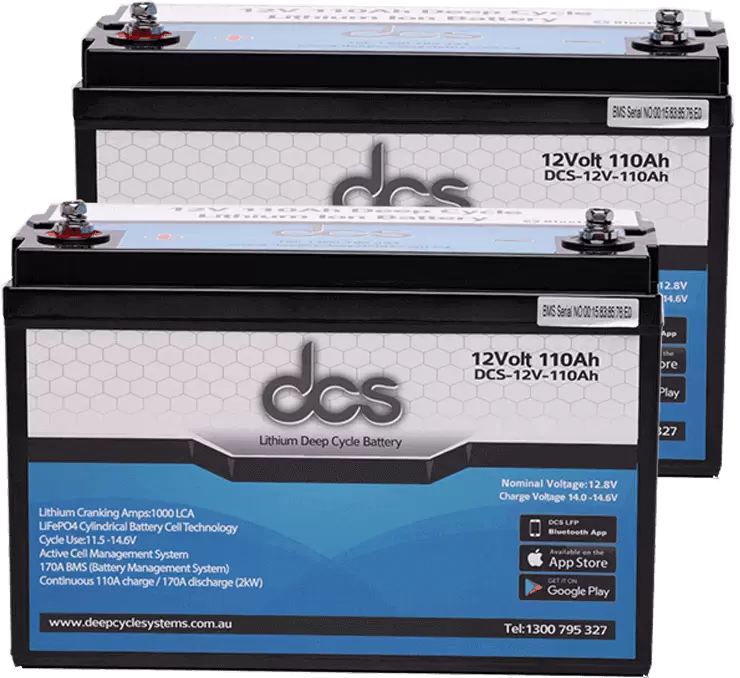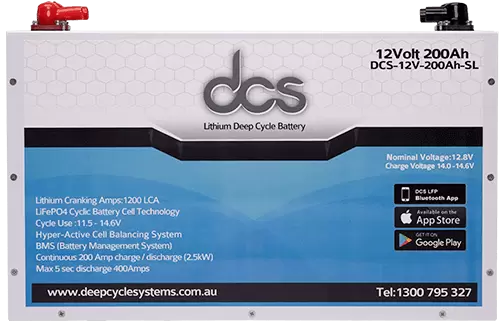Lithium-ion batteries are one of the most popular types of rechargeable batteries in use today. The battery has a host of advantages over other types of batteries. Such as lead acid makes it an excellent choice for portable electronics and other applications requiring high energy density and long life. Consumers also widely use lead-acid batteries because they cost less than lithium-ion batteries. However, A lithium-based deep cycle battery has several advantages over their lead acid counterparts:
Reliability
Lithium-ion batteries are renowned for their reliability and durability compared to other battery types, such as lead acid. A lithium-ion battery’s lifespan is typically around three times longer than that of a comparable lead-acid battery. In addition, they are more resistant to damage caused by repeated charging cycles or extreme temperatures and humidity levels. Because of their increased durability, you can store lithium-ion batteries for more extended periods without becoming unusable (up to 10 years).
Lithium-ion batteries also have advantages when it comes to shelf life. In comparison, lead acid batteries lose power over time due to self-discharge from sitting unused on shelves before being sold at retail stores across the country. Lithium-ion batteries hold power much better during storage between uses in solar systems!
Low Maintenance Of Deep Cycle Solar Battery
One of the most common complaints about lead-acid batteries is that they require maintenance. This includes adding water to the cells, checking for sulfation and overcharging, and monitoring the battery’s state of charge. A deep cycle solar battery is virtually maintenance-free because its sealed cells can be discharged down as far as 80% without damage or failure. You also don’t need to worry about over-discharging them because they will not cause damage or result in permanent capacity loss like lead acid batteries.
Lightweight
Lithium-ion batteries are generally lighter than lead-acid batteries. This is due to the lead in the former being replaced by other materials, such as carbon and graphite. Lithium-ion batteries also tend to be more compact than their lead-acid counterparts. Due to this reason, you can install them in smaller spaces or on vehicles that would not usually support a large battery.
 Eco-Friendly
Eco-Friendly
Lithium-ion batteries are an eco-friendly option for your solar energy storage needs. They do not contain toxic materials such as lead or cadmium; you must recycle them appropriately to reduce environmental damage.
Solar lithium batteries also do not require special disposal options. You can dispose of them in the same manner as any other household waste.
Smart And Innovative Design Of Deep Cycle Battery Lithium
Lithium-ion batteries are smaller, lighter and more compact than lead acid batteries. They also have a longer lifespan and charge faster than lead-acid batteries. Compared to the latter, a deep cycle battery lithium also has a better energy density. They can store more electrical energy per unit volume or mass of the battery.
With The Advantages Of A Li-Ion Battery, It’s Worth Purchasing!
Lithium-ion batteries are the most popular rechargeable battery on the market today. They have uses in many devices and appliances, including mobile phones, laptops, power tools and electric cars. In addition to being lighter than other rechargeable batteries, lithium-ion is also more cost-effective. They last longer than different types of rechargeable batteries.
Improved Safety Of Li-Ion Batteries
Lithium-ion batteries are the safest type of battery on the market. They have a much lower risk of overheating and catching fire than lead-acid batteries. This is especially true in solar energy systems because if you need to get power from your battery, having a reliable source of energy is crucial.
Lithium-ion has another advantage over other types of deep-cycle batteries: stability. Essentially, lithium-ion can last longer than other types without losing power capacity. When you use up all the power from your system’s lithium battery, it will retain most of its original charge. Such as compared with lead-acid options like Flooded Batteries and AGM Batteries
Increased Energy Density Of Lithium Ion Deep Cycle Battery
One of the most significant advantages of lithium-ion batteries is their high energy density. Energy density is the amount of energy a battery can store per unit of volume or mass. A lithium ion deep cycle battery has a higher energy density than lead acid batteries. They can store more power per kilogram (kg) or litre (l).
Lithium-ion batteries also have a longer lifespan than lead-acid batteries and tend to last longer when used in deep-cycle applications. In addition, lithium-ion technology makes them lighter and less bulky than lead acid cells. As a result, they are easier to transport and install on solar arrays or wind turbine systems.
No Memory Effect
One of the most significant advantages of lithium batteries is that they do not suffer from the “memory effect.” This occurs with older-style lead-acid batteries and can result in a loss of capacity. But lithium-ion cells don’t have this issue. They are able to be fully discharged without any adverse effects. So you can use them again and again without losing battery life.
Excellent Discharge And Charging Efficiency Of Deep Cycle Battery Solar
Lithium-ion batteries can discharge and charge faster than lead-acid batteries. This improves the overall efficiency of your solar power system by reducing its downtime. That is especially if you need to use a lot of energy during short periods. A deep cycle battery solar also has higher energy density than a lead acid battery. This means that the battery can discharge deeper without losing capacity or safety. Lithium cells can be drained to about 80% capacity before internal damage occurs, whereas lead acid cells should never be drained below 50%.
High Adoption Rate
Lithium-ion batteries have a worldwide demand for their high energy density, safety, and longer life. They have wide uses in electric vehicles, portable electronics, and power tools.
Long Cycle Life
Lithium-ion batteries have a much longer cycle life than lead-acid based batteries. While lead acid batteries can be charged and discharged up to 1,000 times (or more), lithium-ion batteries can be discharged approximately 3,000 times. Additionally, lithium-ion has more excellent resistance to heat, which means that it is less likely to overheat or fail due to environmental conditions. This is an essential consideration for solar panels where extreme temperatures may occur during the day or night.
People Who Opt For A Lithium Deep Cycle Battery Gain Many Advantages.
- People opt for a lithium deep cycle battery instead of a Lead Acid battery to gain many advantages. These include:
- Li-ion batteries are lightweight and compact, which makes them easy to transport.
- They have a higher power density, meaning the lithium batteries can store more power in a smaller space.
- These batteries are more efficient than other battery types. You’ll get more life out of your solar deep cycle battery lithium than you would with another type of battery.
Conclusion
The decision to switch from lead-acid batteries to lithium-ion is sound. The latter is much more efficient and less harmful to the environment. Safety is also improved because of the lack of explosive gases during charging or discharging. In addition, they do not have any memory effect, so you do not have to discharge them before recharging!
For more details, feel free to reach out to Deep Cycle Systems any day.
Related Websites
Articles on intellectblogs
Articles on smartyblogs
Articles on yycblogs
Articles on allcityforums
Articles on unrealblogs

